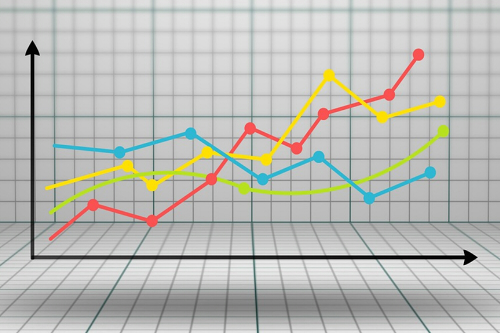The Stock Market Could Crash This Quarter, But Here’s Why You Shouldn’t Stress over It
Maurie Backman
September was a volatile month for the stock market, and so far, October seems to be off to a rocky start. And that may be putting investors on edge, especially given the way the market utterly tanked back in March when news of the coronavirus pandemic first broke.
If you’re worried about the stock market plunging into bear market territory again between now and the end of the year, you’re probably in good company. But rather than stress over that possibility, you’re better off keeping calm and remembering the following things.
1. Bear markets aren’t that uncommon
Quite the contrary – there were 25 of them between 1929 and 2009. Now that news may not be reassuring if you’re fairly new to investing, because we got a 10-year reprieve from bear markets in the decade-long period leading up to March’s crash. But just because you may not have experienced your share of bear markets doesn’t mean they’re unusual.
Here’s some even better news: Bull markets are just as common as bear markets. And, they tend to last longer.

2. You need to take action to lose money
The mere act of stock values falling won’t cause you to lose money in your portfolio. The only way that will happen is if you go out and unload stocks when they’re down.
Now if you leave yourself without any savings or access to money, you may be forced to tap your portfolio when a need for cash arises, thereby creating a scenario where you’re locking in the losses you were hoping to avoid. But if establish an emergency fund with enough money to cover a good three to six months of bills, then you’ll be in a stronger position to leave your portfolio alone if the market does indeed tank over the course of the next three months.
3. Diversification can help protect you
A well-diversified portfolio could help soften the blow if the stock market plummets later this year. Now there are a number of steps you can take to diversify. For one thing, you can load up on index funds, which give you exposure to the broader market without having to do the legwork associated with vetting individual stocks. To be clear, if you invest in index funds and the market crashes, your portfolio will lose value on paper (or on screen). But that loss won’t be specific to you.
You can also hand-pick individual stocks from a variety of market segments. Having around 15 stocks is a good starting point. Furthermore, you may want to choose some stocks with a strong history of paying dividends. If the market crashes, there’s a good chance those companies will still manage to reward investors with quarterly payments, giving you some amount of cushion during a market decline.
The idea of a stock market crash may be nerve-wracking, but when you dig deeper, you may come to the realization that it’s not something worth stressing over. Instead, focus your energy on reading up on bear markets and how to invest during them, boosting your emergency savings, and broadening your personal investment mix. The more proactive you are, the more in control you’re bound to feel if stocks take a turn for the worse sometime during 2020’s final quarter.








